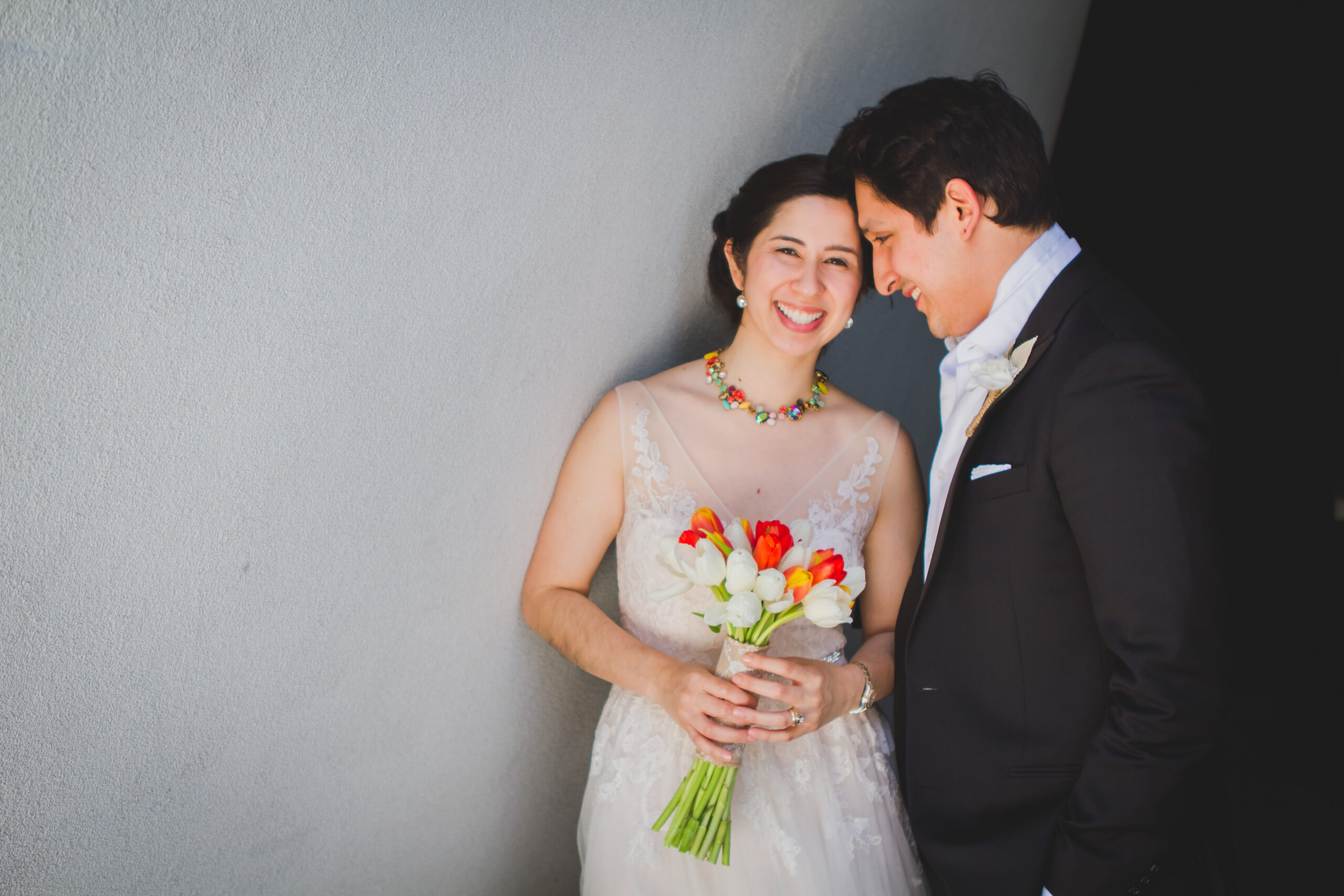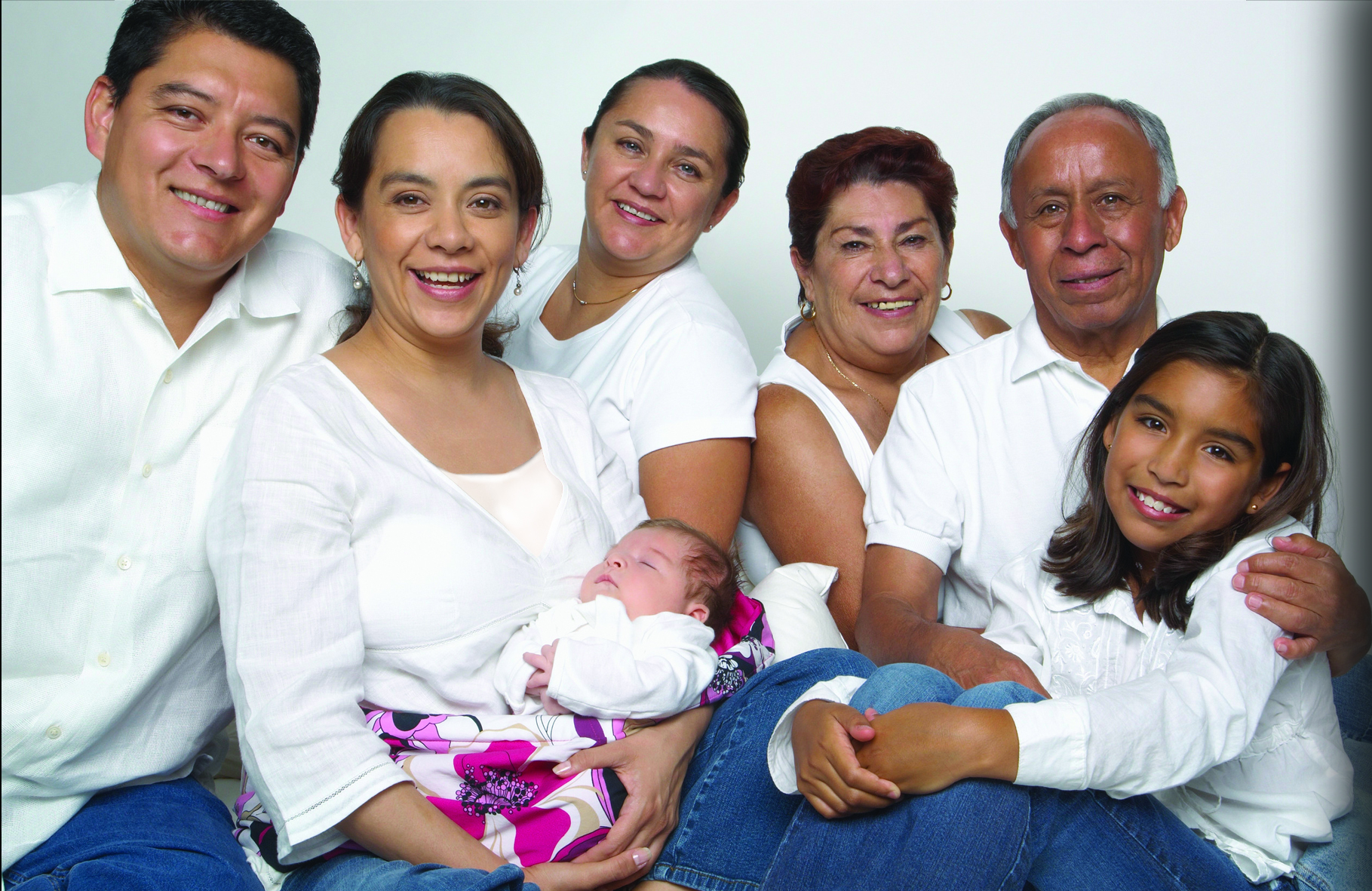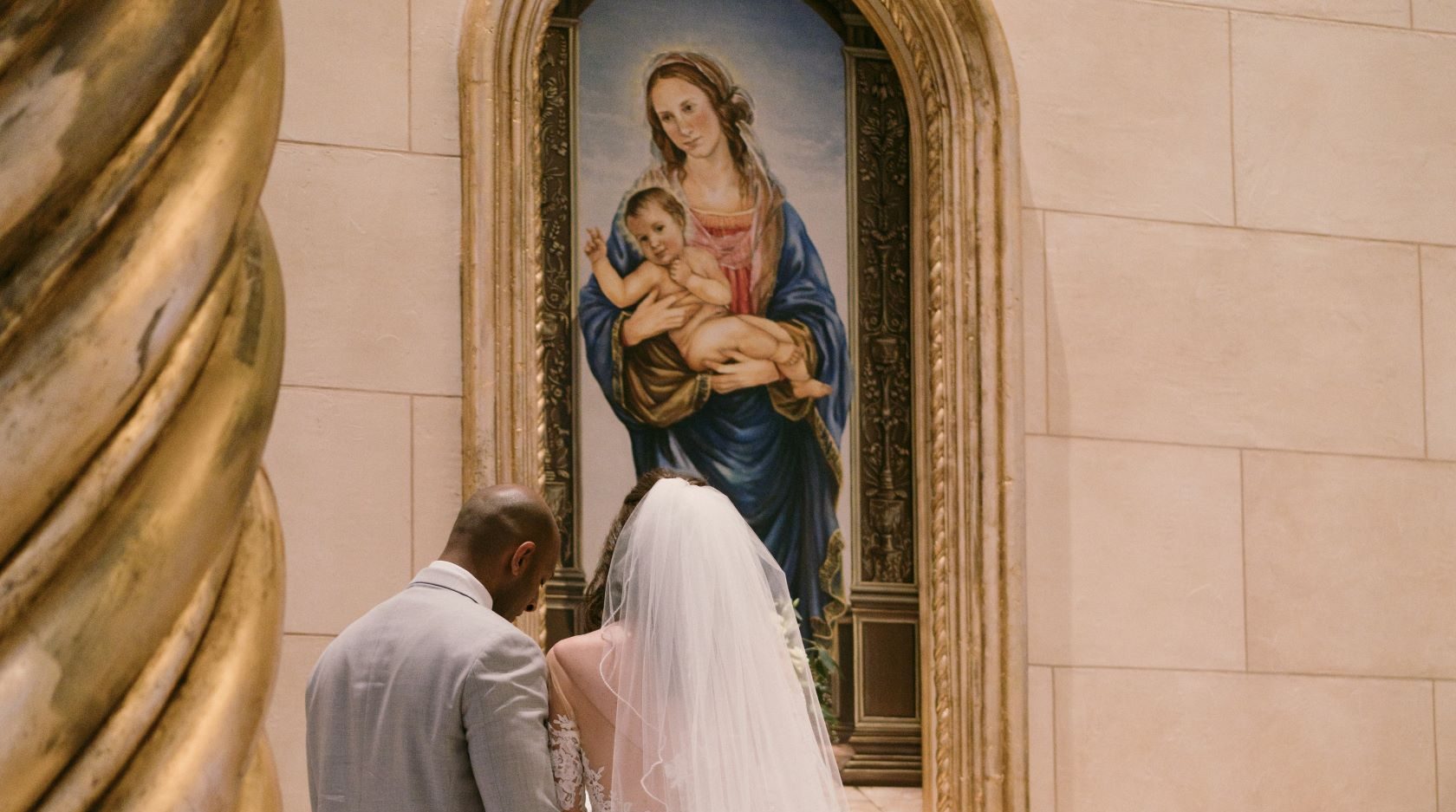
Tag Archives: Marriage


Real Couples Share What It’s Like Practicing NFP
You’ve probably heard that the Catholic Church supports Natural Family Planning (NFP) because it’s the only method of family planning that respects God’s design for married love. You may have also heard about the many benefits of NFP—especially the effectiveness for achieving and postponing pregnancy and the lack of side effects. But, sometimes it’s also helpful to hear from couples themselves.
Many couples can speak to how NFP has not only allowed them to achieve or avoid pregnancy but how the NFP lifestyle has changed their marriages and families for the better. Below is a complete round-up of all the stories couples have been generous enough to share with For Your Marriage and the USCCB’s NFP Office. We also link to several videos from across the country that interviewed NFP couples.
Table of Contents:
Articles:
If I had not found a NaPro physician who took my NFP charts seriously, offering appropriate and individual treatment, I would not also be able to say that my husband and I conceived our first child—an amazing gift made possible by God’s grace and NFP charting, naturally!
Brooke Paris Foley – NFP Saved My Health—Naturally!
NFP asks us to always have before us the deepest questions of our shared life together: Are we open to welcoming new life to our family now? Should we be? What might God be inviting us to?
Josh and Stacey Noem – 5 Ways NFP Has Benefited our Marriage
My husband, Frank, and I have learned that our sexual union should be focused on giving rather than getting. NFP provided the environment to live this out.
Jennifer and Frank – Signs of Grace
Unlike contraception, which usually places full burden of family planning on the woman, NFP promotes shared responsibility of the fertility of both the husband and wife. It lends a spirit of togetherness to a marriage.
Jennifer and John Campbell – Connections: Living Natural Family Planning
Before having children, Misty had been an atheist and I had been an agnostic. With our first child, the miracle of life spurred a spiritual awakening in us… Even after our conversion, however, NFP grew our relationship with each other and with God in ways we never expected.
Tom and Misty Mealey – Be Her Joseph
I found that the chastity required to get through the periods of abstinence caused profound changes in me… I became grateful for all God had given me, most of all for my wife.
Fletcher Doyle – My Slogan: “Practice Saved Sex”
Children do require lots of work, and pregnancy demands its own set of sacrifices, but NFP has helped me meet these challenges by leading me to the realization that children are God’s blessings.
Dawn Farias – How Natural Family Planning Changed My Life
When ill health strikes family members, it adds a dimension of life challenges that spouses never anticipate.
Andrew and Anna Martin – Hard Decisions and Life-Giving Missions
NFP is not moral birth control; rather, it is a complete way of life honoring one’s spouse’s sexuality and fertility. It is loving naturally – the way God designed it.
Michael and Alysha Chambers – NFP, the Theology of the Body, and Our Marriage
In living God’s plan for marriage we found that this “openness” led us also to adoption.
Jennifer and Mike Dress – The Many Dimensions of Openness to Life
Looking back, the most important thing in this whole experience remains our conviction that NFP is a way for us to cooperate with God’s plan. When our plan and God’s plan seemed different, we felt anxious but also hopeful because we knew that God is faithful.
Josh and Stacey Noem – The Week We Were Pregnant
Videos:
- Natural Family Planning – Diocese of Richmond
- Natural Family Planning Testimonials – Archdiocese of St. Paul and Minneapolis
(in English and Spanish) - Why Natural Family Planning? – Archdiocese of Baltimore
- Synod Auditors Discuss NFP – Catholic News Service
For Further Reading:

How Natural Family Planning Changed My Life
As a child I was baptized Catholic, but essentially grew up with no religious practice. As a married adult, I reentered the Church, and soon after felt a tugging at my heart to stop practicing contraception. At that time, I did not know about Natural Family Planning (NFP). More basic, I did not know about Church teachings on the moral practice of family planning. What I would learn about God’s design for my married life and through the practice of NFP would change my life.
True Freedom and Openness to Life
When my husband, Ariel and I took an NFP class, I have to admit that I was scared. Giving up control was frightening! It was one thing to be committed to an ideal, but something quite different to follow through on it. It definitely involved a leap of faith! Over time and with some experience, I began to appreciate the gift and beauty of NFP.
In practicing NFP, my husband and I must decide if we, as a couple, are ready to embrace the possibility of a new life in each menstrual cycle. When we had used contraception, we ignored this reality. With NFP we could not ignore how God made us— as a man and a woman. NFP helped us understand the relationship that God designed between the marital act and procreation. It has made us “open to life.” It even brought our last two children into the family!
The Gift of Self
In using NFP over the years both my husband and I now see that we give ourselves to each other fully in the marital act. For us, the idea of contraception has become almost vulgar. It cheapens the marital act. Contraception seems to say: “I love you, honey, but I don’t love you THAT much.”
NFP also guards against the objectification of the woman in the relationship. Contraception often keeps the woman in a defensive position because it allows “intimacy on demand.” NFP does not allow this because of the practice of periodic abstinence when not seeking a pregnancy. A deeper equality between husband and wife can be nurtured with NFP. NFP begins the process of this awareness.
Growing Together in Holiness
The sacrifices that NFP entails have only served to make me a better person and more devoted to the Lord. Without knowing it, using contraception promotes the idea that children are a burden. Children do require lots of work, and pregnancy demands its own set of sacrifices, but NFP has helped me meet these challenges by leading me to the realization that children are God’s blessings. I am constantly forced to pray, change, make concessions and find solutions to the selfishness and laziness that come up often when meeting the needs of others.
Today, I am confident that had I not been open to life in the practice of NFP, I would not have needed to depend on God, and not have grown as a person. This growth benefits my family and the people I meet in everyday life. Jesus calls us to serve others. Marriage and parenthood are ways we can immediately apply this call in our lives. NFP has led me to be more open to life, more aware of God’s design for intimacy in marriage, more dependent on Him to fulfill these plans. It has strengthened my relationship with my husband, given me personal insight and it has given our children life!
Dawn and her husband, Ariel Farias have four children and live in the Archdiocese of San Antonio.

What Makes Marriage Work
Communication
What is the one indispensable ingredient for making marriages work? Family life educators usually answer: communication. This is good news, because effective communication can be learned. Skills such as active listening, using “I” statements, paying attention to my feelings and those of my spouse, and learning tips for “fighting fair” make marriage easier. Some couples use these skills intuitively because they saw them modeled in their own upbringing. Others can learn them through classes, workshops and reading.
Of course, the hardest part of communicating usually comes when there is disagreement between the two of you.
Commitment and Common Values
Some ingredients, if missing, can doom a relationship from the start. Two primary ones are commitment and common values.
Commitment bonds a couple together when you are tired, annoyed, or angry with each other. Sometimes, remembering your vows can prompt you to push past these problems and try to forgive and start again.
Common values are important. If you aren’t together on basic values such as children, honesty, fidelity, and putting family before work, no amount of learning or effort of the will can resolve the conflict. For example, constant tension will result if one spouse wants to live simply while the other wants life’s luxuries.
Spirituality/Faith
You might not consider yourself a spiritual person; however, anyone who seeks the deeper meaning of life, and not a life focused on personal pleasure, operates out of a spiritual sense. For many this desire is expressed in commitment to a specific faith tradition. Here one joins with others to worship God and work for the common good.
Although being a person of faith is not essential to making your marriage work, it’s a bonus. Certainly good people throughout the ages have had happy marriages and not all of them have been religious. But it helps to have faith principles to guide you and a faith community to encourage your commitment.

Middle Years
For most couples, parenting is the most distinctive feature of this stage. It may be compared to the middle years of childhood (ages 5-12), which is sometimes called the latency stage. Although the child continues to grow, this growth tends to be steady and without significant turmoil.
Some couples-the “sandwich” generation-find themselves taking care of children plus aging parents. Meanwhile, their marriage and personal needs may be pushed into the background, unless a crisis erupts. Couples in the middle stage of marriage often must renegotiate household, financial, and parenting tasks. The stress of these multiple adjustments helps explain why the marriage satisfaction rate drops significantly for parents with young children (Twenge, Campbell & Foster, 2003)
While rearing children can unite parents in a common venture, it also changes the marriage irreversibly. There is more to argue about and less time for conversation, play and sexual intimacy.
During the teen years, parents generally find that they need more emotional than physical energy. Parents stress out over how strict or lenient they should be with their teens. Parents begin to lose control over their teens, but they still bear the responsibility of parenting without the rewards of children who look up to them as if they walked on water. Marital dissatisfaction decreases significantly for most couples during the teen years.
Couples who do not have children have their own issues to deal with. They may want children and have been dealing with infertility. If many of their friends have children they may they feel left out. They may be so consumed with career or extended family obligations that their marriage relationship has become stale.

Stages of Marriage
The psychologist Paul Tournier said, “I’ve been married six times – all to the same woman.” Tournier explained that he never got divorced, but rather his marriage transitioned from one stage to another.
All healthy marriages experience change and transition. That’s what keeps them alive and growing. Some of the stages of growth are predictable, others are not.
We provide an Overview of the Stages of Marriage. Then, for simplicity, we’ve divided marriage into chronological time frames:
- Newly Married (0 – 5 years)
- Middle Years (6 – 25 years), which usually coincide with the active parenting stage
- Later Years (26+ years), also known as the “empty nest” years
Not all marriages fit neatly into these categories. Those in second marriages may find times shortened; however, certain developmental tasks generally take place during each stage.
“All healthy marriages experience change and transition. That’s what keeps them alive and growing.”
Another way of looking at transitions in marriage is through cycles of growth. Most relationships move through cycles that include:
- Romance
- Disillusionment
- Mature Love
In this framework, the stages emerge more quickly, with disillusionment often coming soon after the honeymoon. Mature love evolves-hopefully-after several years of marriage.
In The 7 Stages of Marriage (2007), Harrar and DeMaria identify the stages as:
- Passion
- Realization
- Rebellion
- Cooperation
- Reunion
- Explosion
- Completion
However you describe it, the essential point is that marriage is a process. It evolves. It helps to know what to expect at the various stages. Otherwise, normal transitions may be misinterpreted as loss of love or reasons to divorce.

Catholic Marriage FAQs
Why does the church teach that marriage is a sacrament?
The sacraments make Christ present in our midst. Like the other sacraments, marriage is not just for the good of individuals, or the couple, but for the community as a whole. The Catholic Church teaches that marriage between two baptized persons is a sacrament. The Old Testament prophets saw the marriage of a man and woman as a symbol of the covenant relationship between God and his people. The permanent and exclusive union between husband and wife mirrors the mutual commitment between God and his people. The Letter to the Ephesians says that this union is a symbol of the relationship between Christ and the Church.
Do Catholics ever validly enter into non-sacramental marriages?
Yes. Marriages between Catholics and non-Christians, while they may still be valid in the eyes of the Church, are non-sacramental. With permission, a priest or deacon may witness such marriages.
What is the difference between a valid and an invalid Catholic marriage?
Just as individual states have certain requirements for civil marriage (e.g., a marriage license, blood tests), the Catholic Church also has requirements before Catholics can be considered validly married in the eyes of the Church. A valid Catholic marriage results from four elements: (1) the spouses are free to marry; (2) they freely exchange their consent; (3) in consenting to marry, they have the intention to marry for life, to be faithful to one another and be open to children; and (4) their consent is given in the presence of two witnesses and before a properly authorized Church minister. Exceptions to the last requirement must be approved by church authority.
If a Catholic wants to marry a non-Catholic, how can they assure that the marriage is recognized by the Church?
In addition to meeting the criteria for a valid Catholic marriage (see question #3), the Catholic must seek permission from the local bishop to marry a non-Catholic. If the person is a non-Catholic Christian, this permission is called a “permission to enter into a mixed marriage.” If the person is a non-Christian, the permission is called a “dispensation from disparity of cult.” Those helping to prepare the couple for marriage can assist with the permission process.
Why does a Catholic wedding have to take place in a church?
For Catholics, marriage is not just a social or family event, but a church event. For this reason, the Church prefers that marriages between Catholics, or between Catholics and other Christians, be celebrated in the parish church of one of the spouses. Only the local bishop can permit a marriage to be celebrated in another suitable place.
If a Catholic wishes to marry in a place outside the Catholic church, how can he or she be sure that the marriage is recognized by the Catholic Church as valid?
The local bishop can permit a wedding in another church, or in another suitable place, for a sufficient reason. For example, a Catholic seeks to marry a Baptist whose father is the pastor of the local Baptist church. The father wants to officiate at the wedding. In these circumstances, the bishop could permit the couple to marry in the Baptist church. The permission in these instances is called a “dispensation from canonical form.”
If two Catholics or a Catholic and non-Catholic are married invalidly in the eyes of the church, what should they do about it?
They should approach their pastor to try to resolve the situation.
When a Catholic marries a non-Catholic, must the non-Catholic promise to raise the children in the Catholic faith?
The non-Catholic spouse does not have to promise to have the children raised Catholic. The Catholic spouse must promise to do all that he or she can to have the children baptized and raised in the Catholic faith.
Is it required that a wedding celebration have expensive flowers, clothes and other accompaniments?
The Rite of Marriage makes no reference to any of these cultural elements. The focus of the couple should be on the celebration of the sacrament. Pastors repeatedly point out that a couple do not have to postpone the celebration of the Sacrament of Marriage because they cannot afford such things. See Budgeting for Your Wedding.
How much does it cost to get married in the Catholic Church?
Dioceses often regulate the stipend, or offering to the church, that is customary on the occasion of a wedding. Depending on different areas, this might also include the fee for the organist and vocalist. In a situation of true financial difficulty, couples can come to an agreement with their pastors so that true financial hardship will never prevent a Catholic marriage from taking place. For more information, see How Much Does it Cost to Marry in the Catholic Church?
What is a Nuptial Mass and when can a couple have one?
A Nuptial Mass is a Mass which includes the celebration of the sacrament of marriage. It has special readings and prayers suitable to the Sacrament of Marriage. The Sacrament of Marriage between two baptized Catholics should normally be celebrated within Mass.
If the situation warrants it and the local bishop gives permission, a Nuptial Mass may be celebrated for a marriage between a Catholic and a baptized person who is not a Catholic, except that Communion is not given to the non-Catholic since the general law of the church does not allow it. In such instances, it is better to use the appropriate ritual for marriage outside Mass. This is always the case in a marriage between a baptized Catholic and a non-baptized person.
Are weddings permitted on Sundays or during Lent?
Church law allows weddings to be held during most days of the year, except the Triduum. However, many parishes do not schedule weddings on Sundays because of the conflict with regularly scheduled Masses and other parish activities. In addition, some dioceses and parishes do not allow weddings during Lent, a season of penance.
What should a couple do when they decide that they want to marry in the Catholic Church?
They should contact their parish as soon as possible and make an appointment to talk with the priest, deacon or staff person who is responsible for preparing couples for marriage. This person will explain the process of marriage preparation and the various programs that are offered.
Why does the church require engaged couples to participate in a marriage preparation program?
Marriage preparation offers couples the opportunity to develop a better understanding of Christian marriage; to evaluate and deepen their readiness to live married life; and to gain insights into themselves as individuals and as a couple. It is especially effective in helping couples to deal with the challenges of the early years of marriage.
What kinds of marriage preparation programs does the church offer?
Depending on the diocese and the parish, several may be available. Programs include a weekend program with other couples, such as Catholic Engaged Encounter, a series of sessions in large or small groups or meetings with an experienced married couple. Some programs may be offered in Spanish and other languages. Specific programs address particular circumstances, such as remarriage, children brought into the marriage and marriage to a non-Catholic. As part of their preparation, many couples complete a premarital inventory, such as FOCCUS, to identify issues for further discussion.
What key issues are covered in marriage preparation?
Marriage preparation programs help couples to understand the Christian and the human aspects of marriage. Typical topics include: the meaning of marriage as a sacrament; faith, prayer and the church; roles in marriage; communication and conflict resolution; children, parenthood and Natural Family Planning; finances; and family of origin.
Is there a cost for marriage preparation programs?
Most programs charge a modest fee to cover the cost of materials. Programs that require an overnight stay will include an additional cost for rooms and meals. Assistance is frequently available for couples who would otherwise be unable to participate.
Does the church offer any programs to help couples to improve their marriage?
Yes. Peer ministry for married couples is widespread. Many couples meet in parish-based small groups; ministries such as Teams of Our Lady, Couples for Christ, and Christian Family Movement also use the small group approach. The Marriage Enrichment Weekend Program is offered in several states. Some parishes sponsor a retreat day or evening of reflection for married couples. Others offer a mentoring system that matches older couples with younger ones. Throughout the country, many couples participate in Marriage Encounter, which offers a weekend experience and ongoing community support.
What can a couple do if their marriage is in trouble?
Parish priests, deacons and other pastoral ministers are available to talk to couples and to refer them to counselors and programs that can assist them. Retrouvaille (Ree-tru-VEYE) is an effective program that helps to heal and renew marriages in serious trouble. The Third Option is another program that is available in some parts of the country.
What is an annulment?
An annulment is a declaration by a tribunal (Catholic church court) that a marriage thought to be valid according to Church law actually fell short of at least one of the essential elements required for a binding union (see question #3). Unlike civil divorce, an annulment does not erase something that was already there, but rather it is a declaration that a valid marriage was never actually brought about on the wedding day. A declaration of nullity does not deny that a relationship ever existed between the couple, or that the spouses truly loved one another.
How can a couple married 20 years get an annulment?
The annulment process examines the events leading up to, and at the time of, the wedding ceremony, in an effort to determine whether what was required for a valid marriage was ever brought about. While a marriage of 20 years provides evidence that a couple had some capacity for a life-long commitment, the duration of their relationship in itself does not prove or negate the existence of the marriage bond.
If a marriage is annulled are the children from it considered illegitimate?
No. A declaration of nullity has no effect on the legitimacy of children, since the child’s mother and father were presumed to be married at the time that the child was born.
Are annulments expensive?
Fees associated with the annulment process vary within the U.S. Most tribunals charge between $200 and $1,000 for a standard nullity case. Fees are typically payable over time, and may be reduced or even eliminated in cases of financial difficulty. Other expenses may be incurred when consultation with medical, psychological, or other experts is needed.
How long does it take to get an annulment?
It usually takes 12 to 18 months to complete the entire process.

Between Man and Woman
Why does the Catholic Church teach that marriage can exist only between a man and a woman?
Marriage, as both a natural institution and a sacred union, is rooted in God’s plan for creation. The truth that marriage can only exist between a man and a woman is woven deeply into the human spirit. The Church’s teaching on marriage expresses a truth, therefore, that can be perceived first and foremost by human reason. This truth has been confirmed by divine Revelation in Sacred Scripture.
Why can marriage exist only between a man and a woman?
The natural structure of human sexuality makes man and woman complementary partners for expressing conjugal love and transmitting human life. Only a union of male and female can express the sexual complementarity willed by God for marriage. This unique complementarity makes possible the conjugal bond that is the core of marriage.
Why is a same-sex union not equivalent to a marriage?
A same-sex union contradicts the nature and purposes of marriage. It is not based on the natural complementarity of male and female. It cannot achieve the natural purpose of sexual union, that is, to cooperate with God to create new life. Because persons in a same-sex union cannot enter into a true conjugal union, it is wrong to equate their relationship to a marriage.
What unique contributions does marriage between a man and woman make to society?
Marriage is the fundamental pattern for male-female relationships. It contributes to society because it models the way in which women and men live interdependently and commit to seek the good of each other. The marital union also provides the best conditions for raising children: namely, the stable, loving relationship of a mother and father present only in marriage. The state recognizes this relationship as a public institution in its laws because the relationship makes a unique and essential contribution to the common good.
Ideas about marriage have changed over the years. Isn’t same sex marriage just one more change?
The institution of marriage has experienced many developments. Some of these are related to our contemporary understanding about the equality of men and women. These developments have enhanced marriage, but none has conflicted with the basic purpose and nature of marriage. Proposals to legalize same sex marriage would radically redefine marriage.
If people of the same sex love and care for each other, why shouldn’t they be allowed to marry?
Love and commitment are key ingredients of marriage, and the Church recognizes that a basic purpose of marriage is the good of the spouses. The other purpose, however, is the procreation and education of children. There is a fundamental difference between marriage, which has the potential to bring forth children, and other relationships. Marriage between a man and a woman will usually result in children. This remains a powerful human reality, even if every marriage does not bring forth children. This makes marriage between a man and a woman a unique institution.
What difference would it make to married couples if same sex partners are allowed to marry?
We need to answer this question not simply as individuals, but as members of society, called to work for the common good. If same sex marriage were legalized, the result would be a significant change in our society. We would be saying that the primary purpose of marriage is to validate and protect a sexually intimate relationship. All else would be secondary. While we cannot say exactly what the impact of this change would be, experience suggests that it would be negative. Marriage would no longer symbolize society’s commitment to the future: our children. Rather, marriage would symbolize a commitment to the present needs and desires of adults.
Isn’t the Church discriminating against homosexual persons by opposing same sex unions?
No. Christians must give witness to the whole truth and, therefore, oppose as immoral both homosexual acts and unjust discrimination against homosexual persons.
It is not unjust to deny legal status to same-sex unions because marriage and same-sex unions are essentially different realities. In fact, justice requires society to do so.
The legal recognition of marriage, including benefits associated with it, is not only about personal commitment, but also about the social commitment that husband and wife make to the well-being of society. It would be wrong to redefine marriage for the sake of providing benefits to those who cannot rightfully enter into marriage. It should be noted that some benefits currently sought by persons in homosexual unions can already be obtained without regard to marital status. For example, individuals can agree to own property jointly, and they can generally designate anyone they choose to be a beneficiary of their will or to make health care decisions in case they become incompetent.
Where can I learn more about this issue?
The U.S. Conference of Catholic Bishops has launched an Initiative called “Marriage: Unique for a Reason.” Its purpose is to help educate and catechize Catholics on the meaning of marriage as the union of one man and one woman. Resources, including videos and catechetical materials, are available on the website.
RESOURCES:
Between Man and Woman: Questions and Answers About Marriage and Same-Sex Unions is a 2003 statement by the U.S. Conference of Catholic Bishops.
Other statements by the U.S. Conference of Catholic Bishops and the Vatican are available here.
The Massachusetts Catholic Conference has much information about this topic on its website.
Divorce
How does the Church view divorce?
The Church believes that God, the author of marriage, established it as a permanent union. When two people marry, they form an unbreakable bond. Jesus himself taught that marriage is permanent (Matthew 19:3-6), and St. Paul reinforced this teaching (see 1 Cor 7:10-11 and Eph 5:31-32). The Church does not recognize a civil divorce because the State cannot dissolve what is indissoluble. See Catechism of the Catholic Church, #2382-2386.
Are divorced people excommunicated from the Catholic Church?
No. Divorced people are full members of the Church and are encouraged to participate in its activities.
May a divorced Catholic receive Holy Communion?
Yes. Divorced Catholics in good standing with the Church, who have not remarried or who have remarried following an annulment, may receive the sacraments. Catholics who have civilly divorced are encouraged to speak with their parish priest or a spiritual director about their particular situation regarding reception of Holy Communion. Please see the Catechism of the Catholic Church, nos. 2382-2386, for more information.
What support does the Church offer to divorced persons?
The Church understands the pain of those caught in this situation. When divorce is the only possible recourse, the Church offers her support to those involved and encourages them to remain close to the Lord through frequent reception of the Sacraments, especially the Holy Eucharist. (United States Catholic Catechism for Adults, p. 287). Many dioceses offer programs and support groups for divorced and separated persons. Catholic Divorce Ministry, The Beginning Experience, and Journey of Hope are helpful resources.
I am a divorced Catholic who would like to remarry in the Catholic Church. What do I need to do?
Unless your former spouse has died, you will need to obtain an annulment.
I am divorced. I am not a Catholic but I plan to marry a Catholic. We have been told that I need to obtain an annulment before we can marry in the Catholic Church. I do not understand this since I was not married in the Catholic Church.
The Catholic Church respects all marriages and presumes that they are valid. Thus, for example, it considers the marriages of two Protestant, Jewish, or even nonbelieving persons to be binding. Any question of dissolution must come before a Church court (tribunal). This teaching may be difficult to understand, especially if you come from a faith tradition that accepts divorce and remarriage. Some couples in a situation similar to yours have found it helpful to talk with a priest or deacon. To go through the annulment process can be a sign of great love for your intended spouse.
Related resources:
Divorce and Beyond, a book offering a ten-session program to guide people through the grieving process of a divorce. Appropriate for individuals or for divorce support groups, helps start the healing process through study, reflection, and discussion. Also available in Spanish.
Surviving Divorce – Hope and Healing for the Catholic Family, a 12 DVD series with guide either for personal use or as a parish program. Includes Catholic authors Rose Sweet, Dr. Ray Guarendi, Christopher West, and Fr. Mitch Pacwa. Available through Ascension Press.
For Further Reading:
- Healing After Divorce: Hope for Catholics by Susan Rowland
- The Gift of Self: A Spiritual Companion for Separated and Divorced Faithful to the Sacrament of Marriage by Maria Pia Campanella
Biblical Roots of Marriage
Old Testament
According to Sacred Scripture, God instituted marriage as the pinnacle of creation. On the sixth day, in the first creation story, the Book of Genesis tells us: “God created man in his image; in the divine image he created him; male and female he created them. God blessed them, saying: ‘Be fertile and multiply, fill the earth and subdue it’” (Genesis 1: 27-28).
In the second creation story, God says that “it is not good for man to be alone. I will make a suitable partner for him.” (Genesis 2:18). This suitable helpmate was formed from the very rib of man and thus woman was “flesh of his flesh” (Genesis 2:22-23).
Woman, then, is man’s equal in dignity and the one closest to his heart. Because man and woman were created for one another, “a man leaves his father and mother and clings to his wife, and the two of them become one flesh” (Genesis 2: 24). Scripture teaches that marriage is not a mere human institution, but something God established from the foundation of world.
Sin not only brought about a break with God, but it also ruptured the original communion between man and woman. Adam and Eve blamed each another for what had happened and were now embarrassed by their nakedness (Genesis 3:7-13). The Old Testament shows how sin affected the goodness of marriage. There is the polygamy of the patriarchs and kings. Moses allowed divorce because of the people’s “hardness of heart” (see Deuteronomy 24:1 and Matthew 19:8). Men and women did not treat one another with integrity, honor and love as God had intended. Nonetheless, while sin marred the goodness of marriage, it did not destroy it.
New Testament
Christians are new creations in Christ, healed of sin and its effects. Marriage is also recreated and made new in Christ. Jesus tells us that in the Kingdom of God the permanent union of husband and wife that God originally intended can once more be realized (see Matthew 19:6-11). By the grace of the Holy Spirit, husbands and wives can now truly love and honor one another. St. Paul tells us that marriage bears witness to the indissoluble love of Christ for his Church. Thus, husbands should love their wives, “even as Christ loved the church and handed himself over for her to sanctify her” (Ephesians 5:25-26). Wives, too, are called to love their husbands as the Church loves Christ (see Ephesians 5:22-23). The Old Testament also shows how God taught his people to revere once more the institution of marriage. God’s covenant with his people was an image of the exclusive and faithful love of husband and wife. The prophets helped the people see that God had not intended husband and wife to be separated (See Hosea 1-3; Isaiah 54 and 62; Jeremiah 2-3 and 31; Ezekiel 16 and 23; Malachi 2:13-17). The books of Ruth and Tobit bear witness to fidelity and tenderness within marriage. The Song of Solomon shows how the love of a man and a woman mirrors God’s love for his people.
Because marriage is placed within the saving mystery of Jesus Christ, Catholics recognize it as a sacrament. It is a means through which husbands and wives grow in love for one another and for their children, become holy and obtain eternal life.
For further reading:


